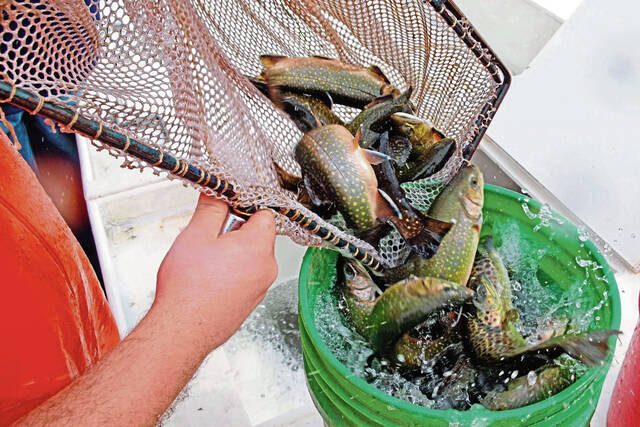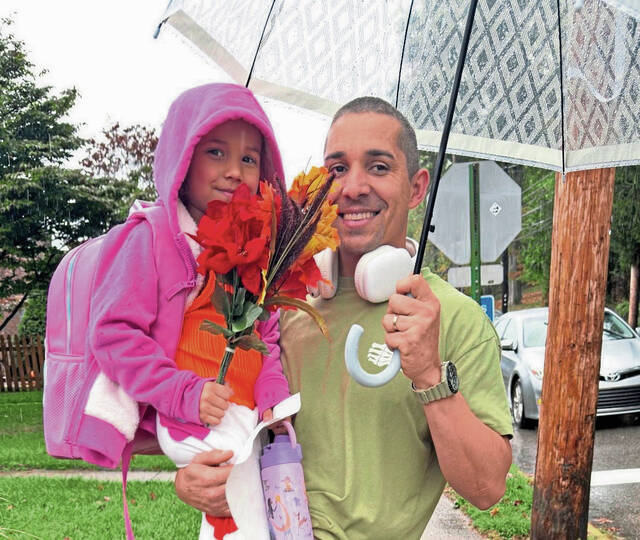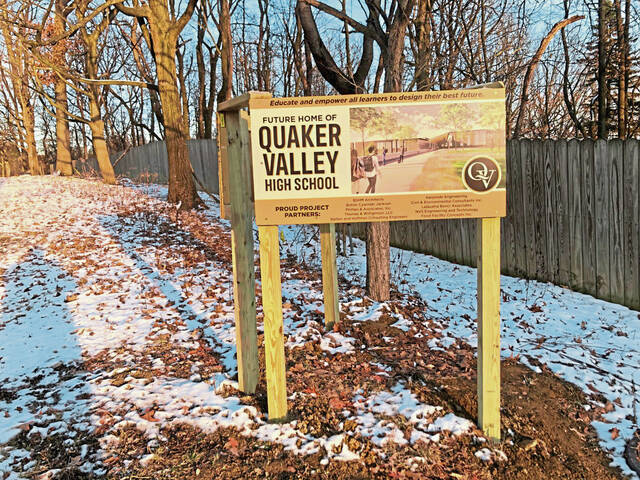A lawmaker is once again asking Pennsylvania’s top environmental official to turn down a plan by PennEnergy Resources to draw millions of gallons of water a day from Big Sewickley Creek and one of its tributaries for fracking.
In July, state Rep. Robert Matzie, D-16th, sent a letter to state DEP Secretary Patrick McDonnell asking that the agency reject PennEnergy’s application.
At the time, the lawmaker said while he supports drilling for natural gas and that in most cases it can be done without harm to the environment, PennEnergy’s proposal failed to include sufficient environmental safeguards.
In October, the energy company’s application to withdraw water from the creek and tributary was denied, in part, because the company failed to provide enough information about how the reduction in water levels caused by the withdrawal will affect the threatened fish species or the wetlands that have been identified in the area.
Matzie asked the DEP to once again reject the energy company’s application to draw water from the creek because “nothing has changed to warrant a reversal of the agency’s previous denial.”
“When I wrote to you in July of last year, I listed a variety of reasons why this is a bad idea,” Matzie wrote in the letter. “Nothing contained in the new application changes that — fishing will still be impacted, wildlife species will still be threatened, and summer drought conditions will still be exacerbated.
“Those issues will not just detrimentally affect the creek and surrounding habitat, they have the potential to destroy the myriad of recreation activities enjoyed by residents as well,” Matzie wrote in the letter.
One of the chief concerns that has been raised about drawing large amounts of water from the creek is the effect it will have on aquatic life and the stream bed if the level drops even more during a summer drought.
Big Sewickley Creek and its tributaries support a stocked trout population and are home to the Southern Redbelly Dace, which is a threatened species in Pennsylvania, according to a biologist for the state Fish and Boat Commission.
Matzie said he supports drilling for natural gas “provided there are strong environmental protections in place and local input.”
“In most cases, I believe we can have a strong, diverse energy portfolio and maintain a clean, healthy environment,” Matzie wrote in the letter to DEP. “But not in this case, not from this waterway, and not with this application.”
The lawmaker stressed that while he does not support bans on natural gas extraction, he also has battled against measures that weaken regulation or remove local input from the permitting process.
PennEnergy officials said they are “committed to safe and responsible natural gas development utilizing industry best practices that meet or exceed regulatory requirements.”
“All water sourcing activities are highly regulated by PADEP (Pennsylvania Department of Environmental Protection), with applications going through a rigorous permitting process to ensure that the withdrawal of water does not adversely impact the subject water sources,” company officials wrote in an email.
“These regulations ensure the protection of fish and other species, their habitat and those operations would not impede or interfere with other uses of the water source,” company officials said.
Matzie said while that the DEP cited seven serious deficiencies when PennEnergy’s permit was denied last year, the application should have been for one reason: insufficient information about whether drilling would create a substantial environmental risk.
But PennEnergy said the technical analysis outlined in its pending application shows that its operations “will not have the negative impacts suggested by Representative Matzie.”
Water is a critical component of natural gas extraction using hydraulic fracturing, or “fracking,” which is a technique used to extract oil and gas from bedrock by injecting a high-pressure mixture of water, sand or gravel and chemicals.
Joining the effort asking the state to deny PennEnergy’s permit is the group Communities First Sewickley, which is urging people to send letters to the DEP.
In an “action alert” being circulated, officials called PennEnergy’s application “woefully lacking in detail.”
Officials with the organization said the application “relies on modeling and assumptions without fully documenting the potential harms.”
The Bradford Woods Conservancy, which maintains the borough’s nature reserve, also urged members to oppose the driller’s request because a portion of the community is in the Big Sewickley Creek watershed.
Documents provided by the state Department of Environmental Resources when it filed an application last year show that the company addresses some of the concerns that have been raised.
Its application to draw water from the creek indicates that it plans to reduce the amount drawn from the creek as the level drops.
Full-pumping operations only will occur when the creek is at its normal level, according to the application.
During drought conditions, the amount of water removed from the waterway will adhere to the following guidelines:
• Drought watch: Reduce pumping by 5%
• Drought warning: Reduce pumping by 15%
• Drought Emergency: Cease pumping
When drought conditions are lifted, the amount of water removed will be increased gradually, according to PennEnergy.
The company also proposed installing a system that uses a floating intake device attached to a flexible water line that leads to a storage container where the pump is located, according to the application.
To keep invasive species from being sucked into the system and transported to other locations, the intake will have a screen and a backflow prevention device “to prevent the commingling of water from the other sources with water from this location,” according to PennEnergy’s response the questions from the DEP.
The system also will be removed from the waterway when it is not in use.








